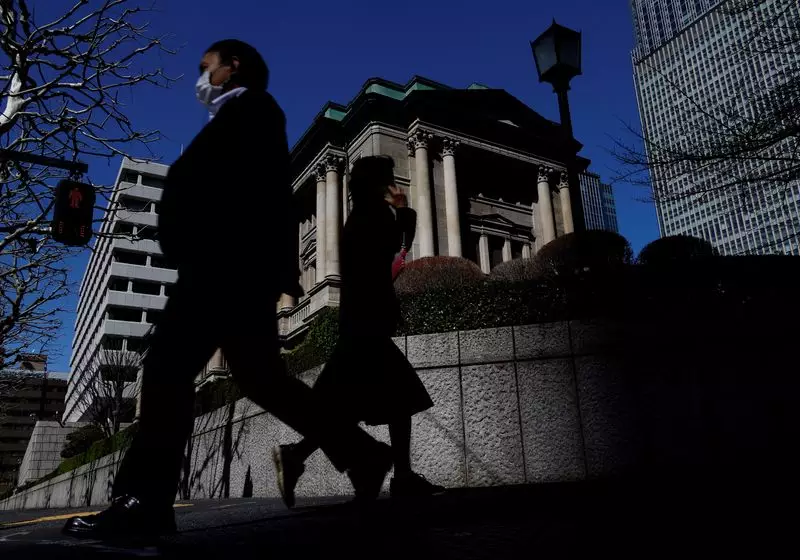The Bank of Japan (BOJ), under the leadership of Governor Kazuo Ueda, is steadfast in its commitment to achieving and maintaining a 2% inflation target. This ambitious goal faces increasing scrutiny as the specter of climate change looms over global economies. With Ueda’s assertion that the central bank will vigilantly observe how climate change, alongside governmental green initiatives, could influence inflation expectations, it becomes evident that economic strategies must adapt to emerging challenges. The significance of this commitment is profound, especially in a nation that has struggled with deflationary pressures for decades.
At a recent conference in Basel, Ueda articulated that while the BOJ aspires to maintain its inflation targets, unexpected shocks induced by climate change could disrupt traditional economic paradigms. Notably, Japan may soon implement a carbon tax, which is anticipated to influence public perception of future inflation. Additionally, the government’s substantial investment in green technology—roughly 20 trillion yen (approximately $131 billion)—is poised to introduce short-term inflationary pressures. While Ueda acknowledged these potential strains, he also remarked that the current underlying inflation rate remains below the desired target, permitting some leeway for temporary price increases.
The BOJ’s strategy toward inflation management is not merely reactive; it is imbued with long-term planning. Ueda indicated that the government plans to roll out a carbon pricing system and an emissions trading scheme by 2026, followed by a fossil fuels surcharge in 2028. These measures, while intended to bolster environmental sustainability, could alter economic dynamics significantly. By establishing a structured approach to emission reductions and green investments, Japan aims to transition towards a more sustainable economic model, albeit with the inherent risk of inflation fluctuation.
The recent conference, collaboratively organized by several banking institutions including the Bank of International Settlements and the BOJ, underscores a growing recognition among financial authorities about the intricate relationship between climate change and economic stability. This collective endeavor illustrates that addressing climate change will require concerted efforts from financial policymakers, reinforcing the notion that monetary policy must account for environmental factors. Ueda’s cautious optimism indicates a broader strategy of integrating economic growth with sustainability while maneuvering toward inflation targets.
The Bank of Japan’s proactive stance toward its inflation target reflects a nuanced understanding of the evolving economic landscape shaped by climate change. As Governor Ueda and his team prepare to address imminent challenges—including the potential economic ramifications of carbon pricing and government subsidies for green technology—the need for agility in policy response has never been more critical. Thus, while Japan aspires to meet its inflation goals, the interplay of climate change and economic policy will undoubtedly shape the nation’s monetary landscape, necessitating vigilant monitoring and continuous adaptation.

